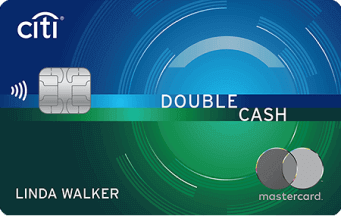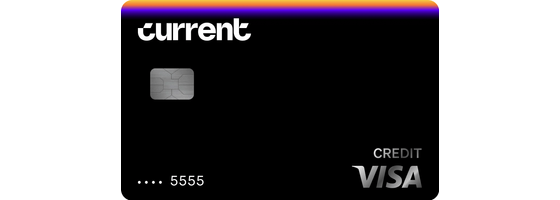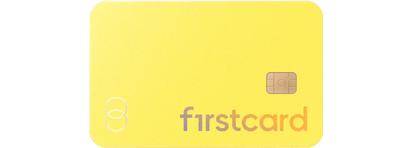- No annual fee.
- High cash back rates.
- No foreign transaction fees.
Our evaluations and opinions are not influenced by our advertising relationships, but we may earn a commission from our partners’ links. This content is created independently from TIME’s editorial staff. Learn more about it.
Student credit cards are an excellent tool for accessing and building credit. Often they have less stringent credit requirements than traditional cards because card issuers understand that students generally have a limited credit history. Some cards, such as secured cards, are available for those with little to no credit, although they usually require a refundable deposit. Some secured cards charge monthly fees.
Many of these credit cards are geared toward students, with their spending habits and specific needs in mind. Others are more general, but offer good options for students who qualify. Keep reading to learn more about the best credit cards for students in 2024, why we chose them, and how to use credit cards to build your credit while avoiding debt.
Chase Freedom Unlimited®
Why we like it:
The Chase Freedom Unlimited® is a solid flat-rate earnings card with annual_fee_disclaimer annual fee. Although the 1.5% cash back doesn’t seem impressive at first glance, it becomes more valuable when combined with other rewards cards from Chase that can be redeemed for a far greater value.
This card is recommended for everyday use, whether for doctor copays or big box store purchases. It can be a large earner for cardmembers who want to get the most out of their everyday spending.
Product details:
- INTRO OFFER: Earn an additional 1.5% cash back on everything you buy (on up to $20,000 spent in the first year) - worth up to $300 cash back!
- Enjoy 6.5% cash back on travel purchased through Chase Travel, our premier rewards program that lets you redeem rewards for cash back, travel, gift cards and more; 4.5% cash back on drugstore purchases and dining at restaurants, including takeout and eligible delivery service, and 3% on all other purchases (on up to $20,000 spent in the first year).
- After your first year or $20,000 spent, enjoy 5% cash back on travel purchased through Chase Travel, 3% cash back on drugstore purchases and dining at restaurants, including takeout and eligible delivery service, and unlimited 1.5% cash back on all other purchases.
- No minimum to redeem for cash back. You can choose to receive a statement credit or direct deposit into most U.S. checking and savings accounts. Cash Back rewards do not expire as long as your account is open!
- Enjoy 0% Intro APR for 15 months from account opening on purchases and balance transfers, then a variable APR of 20.49% - 29.24%.
- No annual fee - You won't have to pay an annual fee for all the great features that come with your Freedom Unlimited® card
- Keep tabs on your credit health, Chase Credit Journey helps you monitor your credit with free access to your latest score, alerts, and more.
- Member FDIC
Best student credit cards: Summary
- Best for bonus cash back: card_name
- Best for flat rate cash back: card_name
- Best for students studying abroad: card_name
- Best for rotating bonus categories: Chase Freedom Flex℠
- Best for balance transfers: card_name
- Best for travel rewards: card_name
- Best for no credit: OpenSky® Secured Visa® Credit Card
- Best for graduate students: card_name
- Best secured card: card_name
- Best for medical students: Citi Double Cash® Card
- Best for banking and credit: Current Build
- Best for high-yield interest: FirstCard
Why we recommend these student credit cards
Best for bonus cash back: card_name
Why we picked it: We chose the card_name because of its generous cash-back rates in student-friendly categories.
It's rare to find a student credit card that earns elevated cash-back rates, but that's what you get with the card_name. The card earns unlimited 3% cash back on dining, entertainment, streaming service, and grocery store purchases. Plus, the card earns 1% on all other purchases. It also comes with a $50 cash welcome offer after spending $100 in the first three months from account opening.
The card_name has annual_fees annual fee and provides basic travel and extended warranty protections. The card comes with access to CreditWise, Capital One's credit monitoring service.
Pros:
Cons:
- High ongoing APR.
- No student-specific perks.
- No intro APR.
Best for flat rate cash back: card_name
Why we picked it: We like the card_name for its simple rewards structure. Cardholders earn unlimited 1.5% cash on all purchases.
If you want to earn cash back but don't want to worry about tracking your spending, the card_name earns unlimited 1.5% cash back on all purchases. The card has a <annual_fees annual fee but no foreign transaction fees. Cardholders can be automatically considered for credit line increases in as little as six months from card opening.
Pros:
- Automatic credit line reviews.
- No tracking spending categories.
- No foreign transaction fees.
Cons:
- $39 annual fee.
- High ongoing APR.
- No welcome offer.
Best for students studying abroad: card_name
Why we picked it: We chose the card_name for its travel benefits. Perks like no foreign transaction fees, travel accident insurance, and 24/7 travel assistance services may come in handy if you're studying abroad.
The card_name has annual_fees annual fee and foreign_transaction_fee foreign transaction fees, making it the perfect card for international travel and students studying abroad.
It earns unlimited 1.5% cash back on all purchases and comes with a bonus_miles_full.
Other benefits include free credit monitoring, card lock, virtual card numbers, and travel accident insurance.
Pros:
- Unlimited cash back on all purchases.
- Welcome bonus with low spend requirement.
- No annual fee.
Cons:
- Potentially high ongoing APR.
- No intro APR offer.
Best for rotating bonus categories: Chase Freedom Flex℠

Chase Freedom Flex℠
Chase Freedom Flex℠
Why we picked it: Chase Freedom Flex℠ is our pick for rotating cash-back categories to fit students with varied spending habits.
Chase Freedom Flex℠ earns 5% cash back on up to $1,500 in total combined purchases in quarterly rotating categories you activate, including gas stations, grocery stores, and Amazon.com. You'll also earn 5% on travel purchased through Chase Ultimate Rewards, 3% on dining at restaurants and drugstore purchases, and 1% on all other purchases.
With the Chase Freedom Flex℠, you will $200 bonus when you spend $500 within three months of opening account. Cardholders also have access to a 0% intro APR on purchases and Balance Transfers for 15 months and 0% intro APR on purchases and Balance Transfers for 15 months (after that a 20.49% to 29.24% Variable applies). Chase Freedom Flex℠ has $0 annual fee but does charge a 3% foreign transaction fee on purchases made outside of the U.S.
Pros:
- No annual fee.
- High cash -back rates.
- Low spending requirement to earn bonus.
Cons:
- Cap on 5% cash-back categories.
- Foreign transaction fee.
- Must activate bonus categories quarterly.
Best for balance transfers: card_name
Why we picked it: We love the card_name for students because of its lengthy intro APR offers on purchases and balance transfers. The offers allow you to finance purchases and card balances over an extended period without interest charges.
For students with existing credit card debt, the card_name is one of the best for a lengthy introductory APR offer for balance transfers. The card features a balance_transfer_intro_apr,balance_transfer_intro_duration and intro_apr_rate,intro_apr_duration (after that a reg_apr,reg_apr_type applies).
The card_name has annual_fees annual fee but does charge a balance_transfer_fees foreign transaction fee on purchases made outside of the U.S.
Pros:
- Generous intro APR offers on purchases and balance transfers.
- No annual fee.
- No late fees.
Cons:
- Foreign transaction fee.
- Limited card benefits.
- Doesn't earn rewards.
Best for travel rewards: card_name
Why we picked it: We chose card_name for its valuable travel rewards, the same rewards earned by the issuer's premium travel rewards cards.
While it doesn't pack as much punch as Capital One's higher-tiered travel cards, the card_name is a good option for students who want to travel. The card earns unlimited 1.25x miles on every purchase. Plus, it earns unlimited 5x miles on hotels and rental cars booked through Capital One Travel.
You can book a trip with miles through Capital One Travel, redeem miles for statement credits, or get reimbursed for past travel purchases made with the card. card_name has annual_fees annual or foreign transaction fees.
Pros:
- No annual fee.
- No foreign transaction fees.
- Multiple redemption options.
Cons:
- Lower rewards rate than some comparable cards.
- Requires at least good credit.
- Limited travel benefits.
Best for no credit: OpenSky® Secured Visa® Credit Card
Why we picked it: We picked the OpenSky® Secured Visa® Credit Card because of its lack of credit requirements to qualify, giving students an easier path to access credit.
With the OpenSky® Secured Visa® Credit Card, there is no credit check to apply. The secured credit card has a $35 annual fee with a minimum $200 minimum refundable security deposit. Cardholders can qualify for credit line increases every six months with responsible use and an upgrade to the OpenSky®GoldVisa® Unsecured Credit Card after six months.
Pros:
- No credit check required.
- Potential to upgrade to an unsecured card.
Cons:
- Annual fee.
- Requires a security deposit.
- No rewards.
Best for graduate students: card_name
Why we picked it: We chose the card_name as an option for graduate students who may qualify for the card's more stringent approval requirements. The card offers great cash-back rates and more benefits than most traditional student cards.
If you're a graduate student with established credit, you may qualify for card_name. You will bonus_miles_full. Cardholders earn 5% cash back on travel purchased through Chase Ultimate Rewards, 3% on dining at restaurants and drugstore purchases, and 1.5% on all other purchases.
card_name is great for financing large purchases or paying off existing card debt thanks to its balance_transfer_intro_apr,balance_transfer_intro_duration and intro_apr_rate,intro_apr_duration (after that a reg_apr,reg_apr_type applies). This Chase card includes partner benefits with DoorDash, Lyft, cInstacart and several travel protections. card_name has annual_fees annual fee.
Pros:
- No annual fee.
- Low spending requirement to earn bonus.
- Generous cash-back rewards.
Cons:
- High ongoing APR.
- Foreign transaction fee.
Best secured card: card_name
Why we picked it: We like the card_name for its credit building potential for students who don't qualify for a traditional credit card.
Secured credit cards offer entry-level access to credit through a refundable security deposit. Students who don't qualify for a traditional credit card can build their credit using a secured credit card, eventually graduating to an unsecured card. The card_name requires a $49, $99, or $200 minimum refundable deposit but has annual_fees annual fees and foreign_transaction_fee foreign transaction fees.
The card offers automatic credit line reviews in as little as six months and an opportunity to upgrade to a standard card_name with responsible use. The card_name doesn't offer many perks, but it comes with standard benefits, such as account alerts, credit score monitoring, and fraud protection.
Pros:
- Potentially lower annual fee than your credit line
- No annual fee
- Automatic credit reviews
Cons:
- High ongoing APR
- No intro APR
- Does not earn rewards
Best for medical students: Citi Double Cash® Card

Citi Double Cash® Card
Citi Double Cash® Card
Why we picked it: We love the Citi Double Cash® Card for it's simple cash back structure which doesn't require tracking spending categories. It's an ideal cash back card for busy medical students.
The Citi Double Cash® Card allows you to earn cash back without all of the work of tracking spending, perfect for the rigors of a busy medical student schedule. The card earns 2% cash back on purchases: 1% when you buy plus 1% as you pay. To earn cash back, pay at least the minimum due on time.
Citi Double Cash® Card offers a balance_transfer_intro_apr,balance_transfer_intro_duration (after that a reg_apr,reg_apr_type applies). The card charges a foreign_transaction_fee foreign transaction fee on purchases outside the U.S., so it's not a good choice for medical students traveling overseas.Pros:
- Generous welcome bonus
- Simple rewards structure
- No annual fee
Cons:
- Potentially high APR
- No intro APR on purchases
- Foreign transaction fee
Best for banking and credit: Current Build

Current Build Card
Current Build Card
Why we picked it: We chose the Current Build Card because it combines banking and credit-building into one secured credit card without requiring a security deposit or a credit check. Cardholders can build credit every time they use their Build card, even at the ATM.
If your credit profile is lacking, the Current Build card can help you build your credit without the typical requirements of traditional and secured credit cards. The card comes with a Current bank account. As you deposit funds into your account, your balance becomes your credit limit, and is used to make payments each month.
The card comes with bank benefits like fee-free access to Allpoint ATMs, mobile check deposit, and early direct deposit. Eligible card transactions, even at the ATM, can help you build credit. Cardholders also earn bonus cash back on eligible purchases at select retailers. There's an option to transfer funds to a savings pod to earn interest. Unfortunately, funds kept in savings pods don't count toward your available credit.
Pros:
- No credit check.
- No annual fee.
- No APR.
Cons:
- Only reports to one credit bureau.
- Funds moved to a savings pod don't count toward your credit limit.
- Must open a Current account.
Best for high-yield interest: Firstcard

Firstcard
Firstcard
Why we picked it: Firstcard helps you build credit while earning high-yield interest up to 4.25% APY on your account balance. Plus, funds kept in your Firstcard account are FDIC insured up to allowable limits through its bank partner, Regent Bank.
Firstcard is another secured card that combines credit building, banking, and rewards. Your account balance acts as your credit limit, with no minimum deposit requirement. There's no credit check required to apply. Firstcard offers multiple ways to earn cash back on select purchases.
Cardholders who register with a Social Security number or Individual Taxpayer Identification number earn 1.25% APY on their deposits. Those who upgrade to Firstcard+ earn an incredible 4.25% APY. The premium version costs $2.99 per month, but also includes perks like credit monitoring and an additional 1% cash back on select purchases.
Pros:
- No credit check.
- No annual fee.
- No APR.
Cons:
- Monthly fee to earn the highest interest rate.
- No upgrade option.
- Fee for out-of-network ATM transactions.
Best student credit cards comparison chart
| Card name | Annual fees | Credit score needed | Bonus rewards |
|---|---|---|---|
annual_fees | credit_score_needed | bonus_miles | |
annual_fees | credit_score_needed | bonus_miles | |
annual_fees | credit_score_needed | bonus_miles | |
$0 | Excellent, Good | $200 bonus | |
annual_fees | credit_score_needed | bonus_miles | |
annual_fees | credit_score_needed | bonus_miles | |
annual_fees | credit_score_needed | bonus_miles | |
annual_fees | credit_score_needed | bonus_miles | |
annual_fees | credit_score_needed | bonus_miles | |
credit_score_needed | bonus_miles | ||
$0 | No credit check | N/A | |
$0 | No credit check | N/A |
Our methodology
To find the best credit cards for students, we compared dozens of cards based on the following criteria:
- Credit requirements
- Introductory APR offers
- Variable APRs
- Annual fees
- Card benefits and perks
- Travel benefits
- Consumer protections
- Rewards rates
- Welcome offers
- Travel benefits
The typical student looking for a credit card likely hasn't had enough time to build a credit history and score to qualify for the top rewards credit cards or cards featuring higher annual fees. The cards on this list represent the best credit cards for students, either for a specific benefit or based on overall strength of rewards, features, and availability.
How to choose the best student credit card for you
Choosing the right credit card depends on your credit profile and specific needs as a student. You may not qualify for certain cards on our list if you have little to no credit history or a lower credit score. If that's the case, start where you are and work to improve your credit enough to qualify for a better credit card.
Consider which card features are important to you. For example, if you are studying abroad or travel frequently, a card that doesn’t charge foreign transaction fees is ideal. Also, consider your spending habits and look for cards that earn rewards in specific categories aligned with how you spend your money.
What are the requirements to be approved?
Most card issuers rely on credit scores and history, along with other factors, to determine eligibility for a card and set rates and credit limits. Issuers may consider a student's income when approving card applications. Some cards, especially secured credit cards, may not require a credit score or income.
Can students get pre-approved for credit cards?
When possible, look for cards that offer pre-approval, which allows you to check for card offers without negatively impacting your credit score. Pre-approval doesn't guarantee you'll be approved for a particular card, but it's an indicator that you meet the basic criteria to get approved.
How to build credit (and avoid debt) once you get approved
Once you've been approved for a credit card, it's time to practice responsible use and build your credit. Here are a few best practices to implement when using a credit card.
- Pay on time. Never be late with your monthly payments. Card issuers report payments to credit bureaus, and payment history plays a significant role in your credit score. Set up automatic minimum payments so you never miss a payment.
- Only spend money you have. Spend within your means. Only use your credit card if you have money available to pay off those purchases or bills.
- Pay off your balance each month. Paying your full balance each month will help you avoid costly interest charges.
- Keep your balances low. If you do need to carry a balance from month to month, keep it low. Credit utilization—how much of your available credit you use—is another major factor that affects your credit score.
- Earn rewards for everyday spending. Don't spend outside your usual everyday spending habits just to earn rewards.
Alternatives to student credit cards
If you don't meet requirements to qualify for a traditional credit card, here are some alternative ways to access and build credit as a student.
- Secured credit cards. Getting a secured credit card doesn’t depend on a credit inquiry. Instead, they are secured through a refundable deposit, which is often your credit limit. Secured cards are easier to qualify for and provide an opportunity to build credit. Some issuers perform routine account checks after several months of on-time payments to see if you qualify for an upgrade to an unsecured card.
- Authorized user. Another way to access credit is to become an authorized user on a parent's credit card account. It gives you a credit card to use as needed and can help build up your credit as you make regular, on-time monthly payments.
- Prepaid debit cards. A prepaid card won't give you a line of credit or build credit history, but it is accepted nearly everywhere, especially those issued by large payment networks such as Visa and Mastercard. It's also more challenging to overspend with a prepaid card versus a credit card. Pay attention to the fees charged, which may include monthly maintenance, transaction, reloading, and inactivity fees.
TIME Stamp: Use student credit cards wisely to build credit
A student credit card can help you learn how to spend responsibly, and it's a great tool for building credit. As you move through life, having good credit opens opportunities for better rates and discounts, and is often required for financing, renting an apartment—and even landing a job.
Frequently asked questions (FAQs)
What do you do with a student credit card after graduation?
If possible, you should keep your credit card account open, as it will increase the length of your credit history. Some card issuers automatically upgrade you to a new credit card when you graduate. If not, you can request to convert to another credit card, get a credit-line increase, or be granted a lower APR.
Which is better: Student credit cards or regular credit cards?
Regular credit cards typically offer better (and more) card benefits and perks than student credit cards. Student credit cards are generally easier to get than a traditional credit card because of less stringent credit requirements.
Do I need a job to get a student credit card?
No, you don’t. However, you'll still need to meet income and credit requirements to be approved for a card. The Credit CARD Act of 2009 requires credit card issuers to consider the ability to repay credit card debt of any applicant under 21. The card issuer may ask you to document your source of income to make monthly credit card payments.
How do you apply for a student credit card?
You can apply online through the card issuer. The application process varies depending on the card and your age. You generally have to be 18 years of age to get a credit card on your own, although it can be difficult to qualify for a credit card if you're under 21, unless you can demonstrate the financial ability to make card payments or apply with a cosigner.
Credit card issuers typically perform a hard credit inquiry during the application process, although some student and secured cards may not require it. A hard credit inquiry can cause your credit score to drop temporarily. Some student credit cards allow you to check for pre-approved offers without impacting your credit. Pre-approval does not guarantee you'll be approved for a card.
Can international students apply for a credit card?
Yes, they can. Typically, these types of cards offer ways to apply using an Individual Tax Identification Number (ITIN), more common for international students, instead of a Social Security number.
The information presented here is created independently from the TIME editorial staff. To learn more, see our About page.

